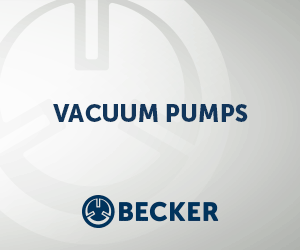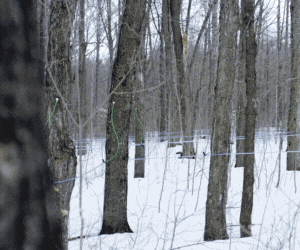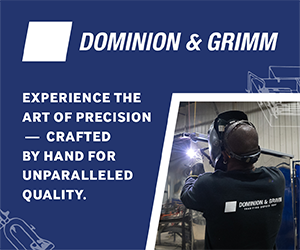Headlines
Natural gas evaporators a good option to consider
Great stuff if you can get it
By STAN MADDUX | OCTOBER 6, 2021
MERRILL, Wisc.—Great stuff if you can get it.
There’s nothing maple syrup makers shouldn’t like about using natural gas evaporators to boil down their sap unless it’s breaking from tradition.
Natural gas is much cheaper and easier to use than most other evaporator fuels and it’s always there whenever needed, said Joel Oelke, a Midwest Regional Salesperson for Leader Evaporator headquartered in Swanton, Vermont.
Oelke said evaporators running on natural gas are becoming more popular but holding back sales is lack of access to a pipeline carrying the cleaner burning fuel.
“A lot of sugarhouses are in remote locations where natural gas just isn’t available,” he said.
Oelke from his home office in Merrill, Wisconsin, is involved in sales for Leader Evaporator throughout the Midwest and as far east as New York and Pennsylvania.
Oelke said evaporators burning oil and wood are still more popular but sales of natural gas evaporators are picking up steam especially in the more populated Midwest where access to a natural gas pipeline in rural areas is more common.
The benefits of natural gas include the cost being much cheaper than oil.
Oelke said it does take more natural gas flowing to the burner to produce the amount of heat generated from oil but there’s still a noticeable savings in net fuel costs.
There’s also no chance of a natural gas evaporator running out of fuel since the gas comes in a pipeline and not a tank like oil.
Natural gas from being clean also doesn’t plug up the filters like oil which has contaminants trapped by the screens, he said.
In addition, Oelke said there are fewer parts on a natural gas evaporator unlike the oil burning kind with fuel pumps, for example, that can break down.
A natural gas evaporator relies on basically just a fan and electronics that control a couple of valves.
“It’s just more mechanically simple and less things to wear out on the burner,” he said.
Oelke said evaporators running on propane have similar maintenance advantages because of the liquid in the tanks being converted into a gas by a vaporizer prior to burning.
More propane has to be used to achieve the same temperature as oil but the lower fuel cost similar to natural gas easily makes up for the added consumption, he said.
One drawback of natural gas and propane evaporators is just a perception nowadays.
Oelke said a lot of people used to be afraid of an explosion if something wrong with a gas evaporator but the technology on the burners has eased those fears.
“More of the safety features on the burners than anything is what’s come a long ways,” he said.Oelke said the only real advantage of using a wood fired evaporator is the full outdoor
experience of splitting logs and smell of firewood burning after collecting sap boiling down into syrup.
Natural gas produces a steady flame as opposed to wood that requires constant stoking as the fire burns down.
He said many syrup makers burning wood probably will never convert to another fuel even if natural gas pipelines were run close to their sugarhouses because they love carrying in fresh loads of wood they split themselves along with the aroma.
Eventually, though, Oelke said some producers after increasing production might think twice.
“Especially as sugarmakers age they realize that making firewood is a lot of work and they just don’t have the time to make enough firewood anymore,” he said.
Oelke has about 1,600 taps in north-central Wisconsin.
He averaged about five pounds of syrup per tap this year.
His production was only slightly down in a season where a good percentage of syrup makers in other parts gathered far less sap from their trees.
“We traditionally have pretty decent production in our woods,” Oelke said.
































